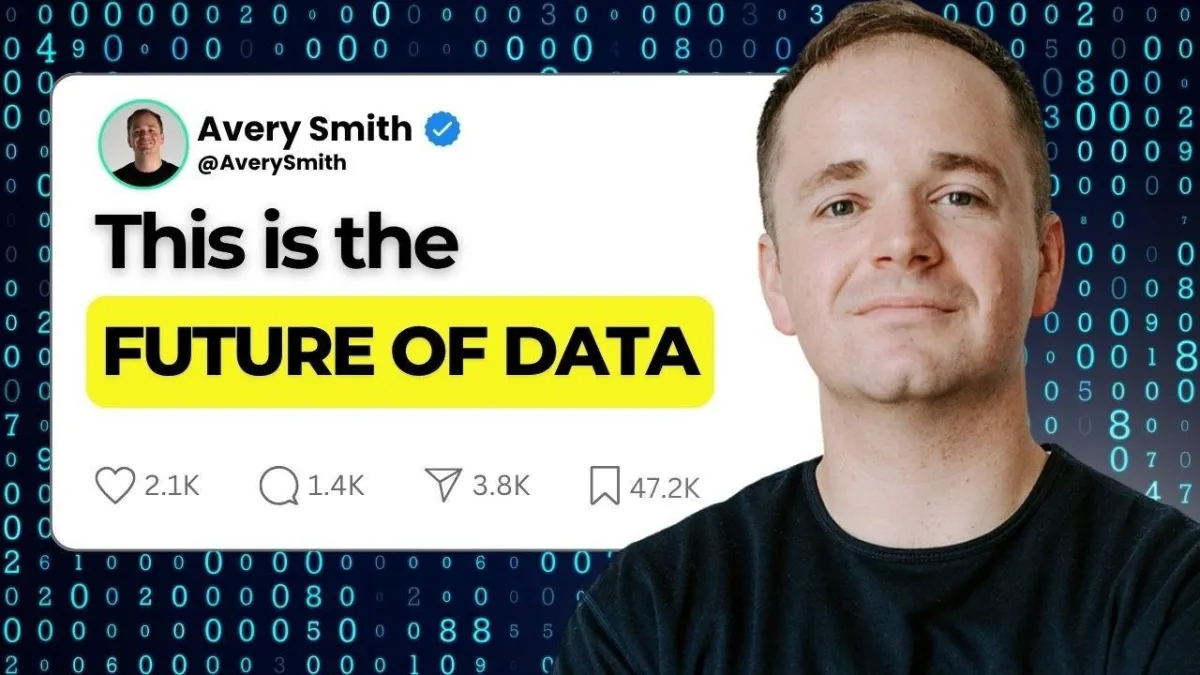
🤖 Will AI Replace Data Analysts?
I recently got called out in my YouTube comment section for not talking enough about AI (yes, I read all my comments). Well, they were kinda right so here’s where I see AI in data analysis.
On one hand, AI is making data analysis more beginner friendly. You don’t have to get bogged down with complicated formulas or unruly coding syntax. That’s a good thing. I’m all for data analysis being more accessible to all.
On the other hand, there’s a general concern that AI is going to replace data analysts (and all knowledge workers) all together. That obviously wouldn’t be ideal.
What’s actually going to happen? Honestly, I’m not 100% sure. I think anyone who is 100% sure is lying.
But I recently got to try one of the leading AI tools for data analysis, Julius.Ai, who happens to be the sponsor of this newsletter issue. (You should try it out w/ me. Use code AVERY25 so they know I sent you.) Here are some of my main takeaways.👇🏻
AI won’t replace you, but someone using AI will
Tools like Julius aren’t here to replace data analysts. They’re about 10x’ing them. I like to think about it like getting the mushroom item in the video game Mario Kart. It’s a power-up that gives your car a speed boost. It allows you to work faster than every before.
You spend less time on low-ROI tasks like looking up syntax and formula parameters and more time on high-level analyst work.
AI will make you faster analyst.
Imagine I cloned myself and have two Avery’s do a data analysis competition. But I equipped Clone Avery with a tool like Julius.ai. Clone Avery would be able to work much faster than the Normal Avery.
So Clone Avery could focus on more high-level tasks, like the “book-ends” of the analysis.
The “book-ends” of data analysis will become more important
With AI tools like Julius eliminating some of the time spent on the less-effective tasks, analysts will (and should) spend more time on the “book-ends” of their analysis. What does this mean?
It means spending more time with stakeholders at the beginning of the project—making sure you understand their business use case and know what they’re actually in need of (not just what they’re telling you).
It also means spending more time on the back-end of your analysis. Making sure your insights are clear. Ensuring the stakeholder actually use what you created for them.
Both the “book-ends” are complicated series of tasks that require a lot of inter-personal human elements. AI can’t replace you in these aspects, but it can give you more time back to enable you to do it.
AI will make you more of a individual-contributor-manager
While scrolling YouTube Shorts the other day I saw a clip of the CEO of Scale AI getting interviewed by Theo Vonn of all people 🤣.
Theo asks him how he thinks AI will change day-to-day work, and the CEO responds with this concept I can’t get out of my head.
He said, “instead of doing the work on a laptop, it’ll almost be like everybody gets promoted to being a manager because [you’ll] be managing a little pod of 10 AI agents.”
Now, an AI CEO saying everyone will get a promotion due to AI? I’m not quite sure if that’s exactly how it’s going to work. But I do know that knowing WHAT to do as a data analyst will become MORE important than the HOW to do it.
In my demo with Julius, I didn’t really have to know HOW to analyze data. Julius did a majority of that for me. But I still had to know what questions to ask. What are the important metrics? What data did we need to clean? What steps should we take?
So I was kinda like a manager. I didn’t really do the actual, hands-on analysis work. But I was the mastermind behind it all. I was the boss.
It was lowkey pretty fun 🤣. Feels good to be the boss.
AI is just a (very useful) tool
AI for data analysis is a powerful tool that will change the way data is done. But it’s just that, a tool. It’s a hammer, a screwdriver, a saw. It is something you wield. Not a replacement. A weapon. It empowers you. Not diminishes you.
Stop being afraid. Start using it. An easy way to get started is to give Julius a try. It’s a lot of fun. You can use code AVERY25 to get started.
p.s. In The Accelerator, we’ve always been pretty AI friendly. We built DataFairy.io for the bootcamp students, we’ve always had some ChatGPT prompts. But I’m thinking of going through each module and doing an AI overhaul. Thoughts?


